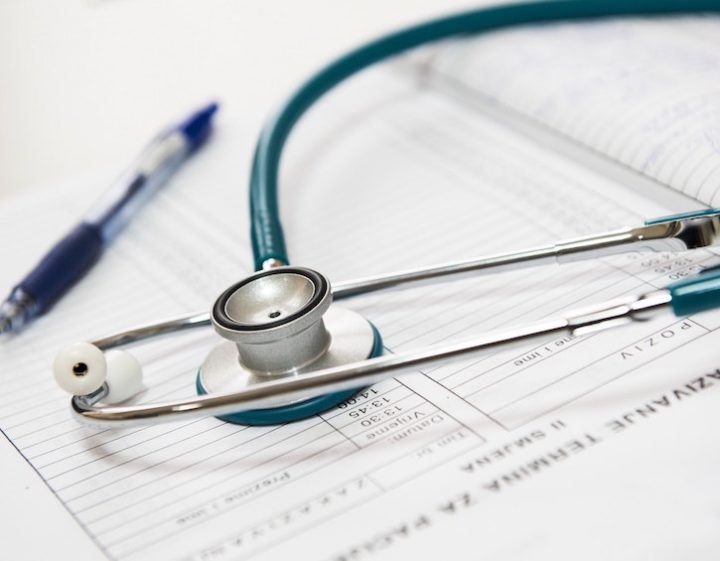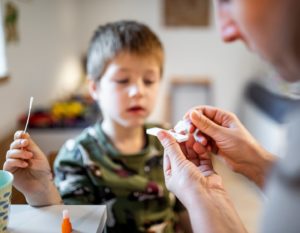
Monitoring your health throughout each decade.
The daily grind of being a mum can be chaotic. There are never-ending to-do lists, constantly juggling schedules and social calendars, plus working hard to keep our families healthy. The truth is, often our own health routine can get put on the back burner as a result of putting everyone else first. It’s important to remember, however, that taking charge of your health through regular check-ups can address potential health issues before they become a problem. To help you be your best self, we put together a list of some important women’s health checks for your 30s, 40s and 50s, to stay in tip-top shape.
Sassy Mama Tip: Remember to always be your own advocate when it comes to your health. If something doesn’t seem right, be sure to seek second (or, perhaps third) opinions in cases where your life and health may be affected adversely. While the points raised in this article will give you a starting point, it’s always advisable for you to visit your general practitioner if you are concerned about your health or have any questions.
Read more: Where To Get Women’s And Family Health Checks In Hong Kong

Women’s Health Checks In Your 30s
Full Gynecological Check
Something you should already be familiar with! All women in their 30s need to make sure their gynaecologist is conducting annual full pelvic and breast exams and a Pap smear (Papanicolaou test). Pelvic exams screen for cervical cancer and check for abnormalities such as any possible growths. Ultrasound scans (abdominal and transvaginal) can sometimes be used for pelvic exams and can pick up on possible lesions for endometriosis for example, or the shape and condition of your uterus.
A breast examination looks for things such as bumps, lumps discharge, skin issues and rashes. If the doctor finds something unusual, or if you have rather lumpy boobs ordinarily so can’t tell if there is a suspicious or new bump, then you might be referred to have a breast ultrasound scan. This way any possible cysts (which are more common than you might realise), enlarged breast tissue or unusual lumps can be checked and monitored.
Pap smear tests include a collection of cervical cells with a swab. The purpose of this screening test is to pick up pre-cancerous abnormalities in the cervix prior to becoming cancerous. If you do get a call from the doctor indicating your Pap smear test results are abnormal, then don’t ring the alarm bells just yet. Remember, this is a screening (not diagnostic) test and a further investigation or a re-do of your swab test may be required.
Thyroid Test
This blood test checks your level of TSH (thyroid-stimulating hormone). High TSH levels can mean you have an under-active thyroid (hypothyroidism), which is a frequent complaint in women’s health (more so than in men) and is often linked to weight gain, fatigue, dry skin and brittle nails. Low TSH levels associated with an overactive thyroid (hyperthyroidism) are linked to symptoms such as a fast pulse, insomnia and weight loss that can’t be attributed to diet or activity changes.
The American Thyroid Association recommends screening to start at age 35 and then every five years thereafter. If you have a family history of this disease, however, it’s recommended to start testing even earlier. If you start to notice symptoms at any age though, it’s best to get checked out immediately. A thyroid problem is treatable and can be temporary. Up to 10% of women develop one after giving birth, which is often mistaken for postpartum depression. If you’re pregnant, chat to your GP about getting tested after the delivery of your baby.
Skin Examination
Skin examinations are recommended from an early age but a health check is a good reminder to do it! Everyone can get skin cancer from UV damage, no matter the colour of your skin, so take care to use sunscreen protection when out in the sun. Being aware of your own skin and noticing moles, freckles blemishes or birthmarks can help detection of skin cancers early. The American Cancer Society recommends women examine their skin every month at home.
If you are fair-skinned, have a history of sunburns or tanning beds, have a weak immune system, or have a family history of skin cancer, you may be at higher risk and should speak with your doctor or dermatologist about frequent in-office exams. It’s time to schedule your next appointment right away if you notice any of the following from existing or new moles:
![]() An asymmetry
An asymmetry
![]() Changes in border
Changes in border
![]() Changes in colour
Changes in colour
![]() Changes in diameter
Changes in diameter
![]() Or any evolving moles
Or any evolving moles
Also, keep in mind that skin cancer can happen anywhere on the body so don’t be modest when speaking to your doctor or dermatologist about any areas of concern (even places where the sun don’t shine).
Read more: Healthy Family Skin Care To Practise When Indoors

Women’s Health Checks In Your 40s
Mammogram
Mammogram is an X-ray of the breasts which screens for cancer and is one aspect of women’s health check that you most likely won’t have experienced until now. There are two types: film and digital. Both are effective for spotting tumours, but research shows that digital mammography is significantly better if you are under the age of 50 or have very dense breasts, according to the National Cancer Institute. A mammogram is essential for picking up smaller tumours that are likely to be in a more treatable stage. Early detection and treatment can help prevent the spread of the disease and increase your odds of recovery. It’s recommended that women have this check-up annually starting at age 40. However if your sister or mother was diagnosed with breast cancer, then it is advised you get tested five to 10 years earlier than the age in which she was diagnosed.
Most mammograms are followed up with a routine email/letter letting you know that the results were normal, but if you do receive a call back from your doctor, don’t assume the worst. It may mean that images were unclear or need to be retaken, or that your doctor may want to examine an area more closely to compare it with your screening (previous) mammogram. Any areas of concern can then be more carefully studied.
Diabetes test
Checking your blood glucose level is helpful in diagnosing pre-diabetes and diabetes (which can often at times go unnoticed). Diabetes is a growing threat to people in Hong Kong, and it’s estimated that one in 10 people suffer from this disease due to poor nutrition, lack of exercise and/or unhealthy lifestyle choices. The health risks are serious and linked to problems such as heart disease, stroke, kidney disease or blindness.
Diabetes blood testing is recommended to start at age 45 and then every three years thereafter. If you are overweight, have high blood pressure or cholesterol, smoke, or have a family history of diabetes, you should talk to your doctor earlier and receive regular check-ups more frequently (every one to two years). Your risk factor for diabetes can be significantly lowered through diet and regular exercise.
Read more: Diabetes: What You Need To Know About Prevention And Management
Cholesterol Test
Cholesterol screening should usually begin at age 40 and should continue every five years thereafter (unless you smoke or show risk factors such as high blood pressure, diabetes, or a family history of heart disease). Cholesterol levels are measured through a blood test to provide your total cholesterol: “good” HDL, “bad” LDL, your triglycerides (another type of fat in the blood). Triglycerides are affected most by what you’ve recently eaten so that’s why it’s recommended you fast before taking your next cholesterol screening.
High cholesterol is linked to heart disease, heart attack and stroke. Estrogen levels raise HDL “good” cholesterol so as you approach menopause, and as your estrogen levels naturally drop, it is thought that your risk may increase. If your cholesterol levels are high, your health care practitioner will be able to provide you with information on cholesterol control through diet, exercise and/or medication.
Read more: Where To Donate Blood In Hong Kong
Women’s Health Checks In Your 50s
Colonoscopy
Colonoscopies are known to be pretty unpleasant but are a necessary test for early detection of colon cancer. This is important because colorectal cancer is one of the most common cancers (for both men and women) in Hong Kong, which increases with age. In a colonoscopy test a doctor will insert a long malleable tube with a small camera through the rectum to check for small growths that can potentially become cancerous. During this time you are sedated and any suspicious growths are removed for further testing. This test is recommended every five to 10 years, however, if you have a family history of this disease than earlier/more frequent testing may be required.
Bone Density (DEXA) Scan
DEXA scans measure bone mass (levels of calcium and minerals) in your bones through an X-ray to indicate bone strength. It’s recommended that women entering menopause should receive this test. As your oestrogen levels decrease with age, your risk for osteoporosis increases. Those generally at higher risk for this disease are Caucasian and Southeast Asian, those with small frames, or family history. Bone density testing is a good indicator of fracture risk; a serious health concern that can leave you hospitalised and/or immobile for some time.
Prevention is helped by consuming calcium-rich foods, high consumption of vitamin D, and by making weight-bearing exercise part of your health routine.
Read more: Children’s Vaccinations In Hong Kong: When And Where To Get Them
Editor’s note: This article was originally published in April 2018 and updated in August 2020.
 View All
View All










 View All
View All




 View All
View All


 View All
View All














